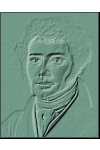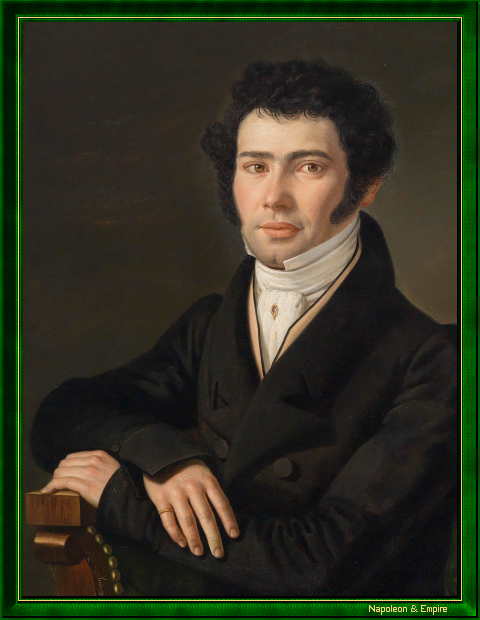Gaspare Spontini

Gaspare Luigi Pacifico Spontini was born into a very modest family on November 14, 1774 in Maiolati, near Ancona in the Marche region. His father wanted him to take holy orders, but the young Spontini preferred music to the pre-mastery, and knew how to make his will prevail.
He studied in Naples , where he came to the attention of Domenico Cimarosa and Niccolò Vito Piccinini, and in 1796 performed his first opera, I Puntigli delle donne, with apparent success.
A few years later, having established his reputation in Italy, Spontini moved to Paris (1803), where he made useful contacts in the musical world - piano maker Sébastien Erard (his future father-in-law), critic François-Joseph Fétis - as well as in high society - Bernard de Lacépède, the President of the French Conservative Senate, Madame de Staël, Juliette Récamier and above all Joséphine de Beauharnais. La Finta filosofa (1804), an opéra-bouffe, pleased the First Consul. But the active hostility of Parisian composers thwarted his attempts at French-language opéra-comique: La Petite Maison (1804), Julie ou le pot de Fleurs (1805).
Thanks to his connections in the upper echelons of society, he was appointed Compositeur particulier de la chambre de l'Impératrice in 1805. The following year, he wrote a cantata to the glory of Napoleon I, L'eccelsa gara, and a vaudeville composed for the Emperor's birthday, Tout le monde a tort, which was performed at Court by members of the Court.
He finally achieved public success in 1807 with La Vestale, for which Luigi Cherubini and François-Adrien Boieldieu had rejected the libretto, and which perfectly embodied the spirit of the age. The work was declared the best lyric work of the decade by the Institut.
In 1810, Empress Joséphine's favor enabled him to obtain the musical direction of the Italian opera at the Théâtre de l'Impératrice, but he lost this position two years later due to a conflict with his general manager.
He was reappointed during the Restoration, but fell out of favor with Louis XVIII and eventually left Paris in 1819 or 1820.
Berlin welcomed him, and the King of Prussia appointed him Generalmusikdirector. He remained in this post until 1841, elevating the city's opera and concerts to the top ranks in Europe, while continuing his work as a composer and serving the German repertoire, particularly Johann Sebastian Bach and Ludwig van Beethoven. But he gradually fell out with the administration and the critics, and eventually had to leave Germany after a violent demonstration during a performance of Don Giovanni. During these twenty years, Spontini also made several trips abroad, including to France, where he was elected to the Académie des Beaux-Arts in 1838.
He settled in Rome in 1842, receiving the title of Count of San-Andrea from the Pope two years later. After further travels, he retired to his native city in 1850, where he died on January 14, 1851.
"Gaspare Spontini". Painted in 1828 bu Andreas Hall (Vienne near 1800 - ? 1874)

Of a difficult character, he was nevertheless always generous, particularly to musicians without means, and when his marriage failed to produce an heir, he bequeathed his fortune to charitable institutions.